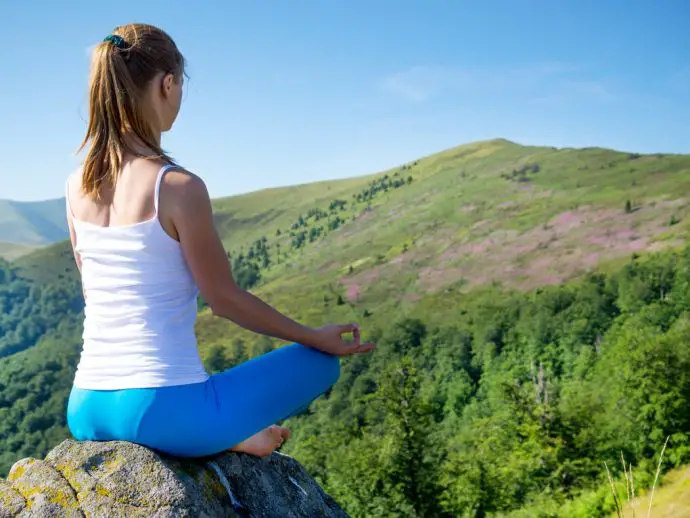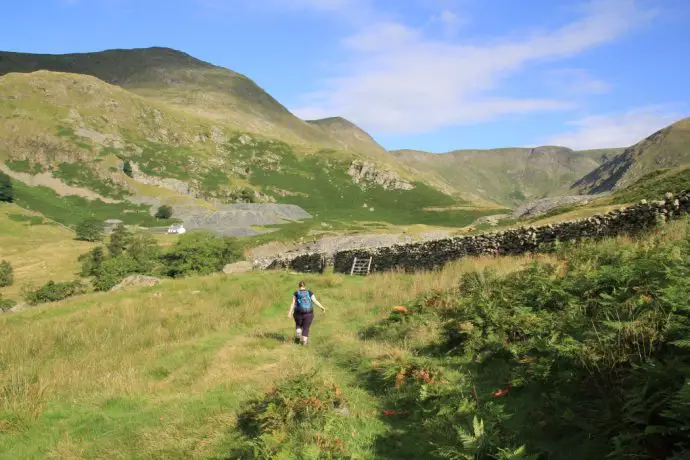Understanding Travel Fatigue
Travel fatigue can take a toll on your body and mind. It messes with your internal clock and puts stress on you in many ways. Let’s look at how it affects your body’s rhythms and the different things that wear you out during trips.
Circadian Rhythm and Jet Lag
Your body has an internal clock called the circadian rhythm. It tells you when to sleep and wake up. When you fly across time zones, this clock gets thrown off. That’s what causes jet lag.
Jet lag can make you feel super tired during the day. You might have trouble falling asleep at night too. Your eating schedule can get messed up as well.
To help your body adjust:
- Try to get on the new time zone’s schedule right away
- Get some sunlight when you arrive
- Take short naps if needed, but don’t sleep too long
Physical and Mental Stressors
Travel puts addition stress on both your emotions and your body. Sitting for hours on planes or in cars can make your muscles stiff and sore. Carrying heavy bags doesn’t help either.
The mental side is tough too. You have to:
- Plan your trip
- Navigate new places
- Deal with delays
- Adjust to different cultures
All of this can lead to:
- Feeling anxious or cranky
- Having a hard time focusing
- Feeling worn out
To cope, try to:
- Move around when you can
- Drink lots of water
- Take breaks to relax
- Be patient with yourself
Remember, it’s normal to feel tired when traveling. Give your body time to adjust.

Pre-Trip Preparations
Getting ready for a trip can help you relax during your journey. Small steps before you leave can make a big difference in how comfortable you feel while traveling.
Adjusting Your Sleep Schedule
Start changing your sleep routine a few days before your trip. Go to bed and wake up closer to the times you’ll follow at your destination to help adjust your body.
Try to get plenty of rest in the days leading up to your departure. Being well-rested can help you cope better with travel stress. If you’re crossing time zones, gradually shift your mealtimes too. This can ease jet lag symptoms.
Set a relaxing bedtime routine to improve your sleep quality. Take a warm bath, read a book, or listen to calm music before bed. Avoid screens for at least an hour before sleeping.
Planning for Comfort
Pack items that will make your trip more pleasant. Bring a comfy travel pillow to support your neck during long rides. Choose loose, soft clothes for your journey.
Make a list of things that help you feel relaxed at home. Pack some of these items if possible. A favorite book, cosy socks, or calming tea can provide comfort.
Think about how to make your luggage easier to manage. Use lightweight bags and pack only what you really need since you can experience stress and strain with heavy luggage.
Plan regular breaks if you’re driving on a long road trip. This helps prevent travel fatigue. For flights, pick an aisle seat if you like to stretch or move around often.
In-Transit Relaxation Strategies
Traveling can be tiring, but there are ways to relax your body during the journey. Try these tricks to feel more comfortable and refreshed while on the move.
Stretching and Walking
Sitting for long periods can make your muscles tight and sore. Take breaks to stretch and walk when you can. On planes, stand up and walk the aisle every hour or two. This gets your blood flowing and eases stiffness.
In your seat, try simple stretches:
- Roll your shoulders
- Extend your legs
- Rotate your ankles
- Gently twist your torso
At rest stops or airports, take a short walk. Even 5-10 minutes of movement helps. Your body will thank you for these mini-breaks from sitting.

Dehydration Prevention
Staying hydrated is key to feeling good while traveling. Planes and other transit can dry you out fast so carry a reusable water bottle and fill it at water stations everywhere you go.
Aim to drink water regularly, not just when you feel thirsty. This keeps your body working well and helps you avoid headaches and fatigue.
Watch out for drinks that can dehydrate you:
- Limit caffeine
- Skip alcohol if you can
- Avoid sugary sodas
Eating water-rich fruits and veggies can also help keep you hydrated. Try bringing cucumber slices or orange segments as snacks.
Mindfulness and Meditation
Your mind needs breaks too. Try some simple mindfulness exercises to feel calmer during your trip. Deep breathing is an easy way to start. Spend a few minutes taking deep, slow breaths. This can lower stress and help you relax.
For a quick meditation, close your eyes and focus on your breath. Count every breath up to about 10, then begin again. This helps quiet your mind.
You can also try a body scan. Start at your toes and slowly move up, noticing how each part of your body feels. This focuses your attention on the here and now, and propels you away from the stresses of travel.
Showing Away Stress
Showering or bathing can be a great way to relax during your travels. A warm soak helps ease tired muscles after long days of sightseeing. Make time for showing in your hotel room when you can.
Focus on creating a calming environment:
- Dim the lights for a soothing atmosphere
- Play soft music
Don’t rush your time. Take at least 15-20 minutes to fully unwind. Let the warm water envelop you and wash away stress.
Try these relaxation techniques while showing:
- Take deep, slow breaths
- Gently stretch your neck and shoulders
- Visualize a peaceful scene
Wrap yourself in a cosy towel or robe when you finish. This will extend the relaxation and help you transition to a good night’s sleep.

Maintaining Energy and Focus
Keeping your energy up during trips can be a challenge. A few key habits can help you stay alert and focused while traveling. Good nutrition and strategic rest are essential for feeling your best on the go.
Balanced Diet and Hydration
Pack healthy snacks like fruits and veggies to munch on during your trip. These give you steady energy without sugar crashes. Bananas, apples, and carrots travel well. Choose whole grains like brown rice or oatmeal when eating out.
Stay hydrated by drinking water often. Bring a reusable water bottle to fill up. Avoid too much alcohol, which can make you tired and dehydrated.
Coffee and tea can give you a boost, but don’t overdo the caffeine. Too much may lead to jitters or trouble sleeping later.
Power Napping
Short naps can refresh you on long trips. Aim for 15-20 minute “power naps” to avoid feeling groggy. Find a quiet spot to rest your eyes, like a park bench or your hotel room.
Set an alarm so you don’t oversleep. Nap early in the day to avoid messing up your nighttime sleep. A quick snooze can help you feel more alert for hours.
If you can’t nap, just closing your eyes for a few minutes can still help you recharge. Take breaks to relax your mind and body throughout the day.
Post-Trip Recovery
Coming home after a tiring trip can be tough on your body and mind. Getting back to normal takes some effort, but there are ways to make it easier. Here are some tips to help you bounce back quickly.
Realigning Your Internal Clock
Adjust to local time as soon as you can. Try to stay awake until a normal bedtime in your home timezone. Get some sunlight during the day to help reset your body clock. Avoid naps if possible, but if you must, keep them short – 20 minutes max.
Eat meals at regular local times. This helps your body adjust faster. Keep your bedroom dark and cool at night. Use earplugs or a white noise app if needed.
If jet lag hits hard, try melatonin supplements before bed for a few nights. Always check with your doctor first though.
Easing Back into Routine
Take it slow as you get back to your normal routine. Unpack right away so you’re not living out of a suitcase. Do a load of laundry to feel more settled.
Get some light exercise like a short walk. This boosts energy and mood. Stretch to ease stiff muscles from traveling. Drink plenty of water to rehydrate.
Connect with friends or family. Share trip stories and catch up on what you missed. This helps you feel grounded again.
Plan something fun for your first week back. It gives you something to look forward to as you readjust.
Cultural and Environmental Adaptation
Traveling to new places can be exciting but also tiring. Learning about local cultures and adjusting to unfamiliar surroundings takes energy. With some simple steps, you can make this process easier on your mind and body.
Language and Communication
Learning a few key phrases in the local language can reduce stress. Try downloading a language app before your trip to practice basic greetings and questions. Carry a pocket phrasebook or use a translation app on your phone.
Don’t be afraid to use hand gestures or pointing to communicate. Most locals appreciate the effort, even if you make mistakes. If you’re staying somewhere for a while, consider taking language classes to improve your skills.
Remember that communication isn’t just verbal. Pay attention to body language and cultural norms around personal space or touching. This can help you avoid misunderstandings.
Acclimatizing to New Settings
Give your body time to adjust to new time zones, climates, and altitudes. Try to get outside during daylight hours to help reset your internal clock. Drink plenty of water, especially in hot or high-altitude areas.
Make your hotel room feel more like home. Unpack your suitcase, hang up clothes, and set out a few personal items. Bring earplugs and an eye mask to block out unfamiliar noises and light.
Don’t push yourself too hard in the first few days. Plan some downtime to rest and recharge. Take short walks to explore your new surroundings at a relaxed pace. This can help you feel more at ease in an unfamiliar place.





